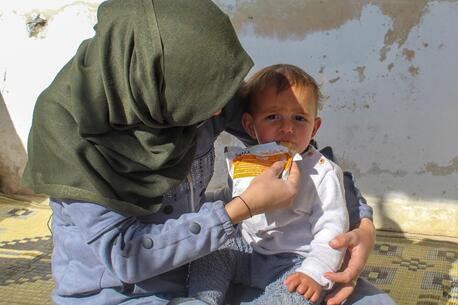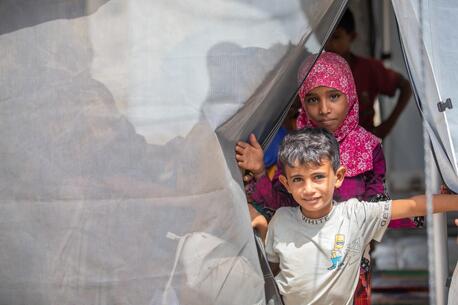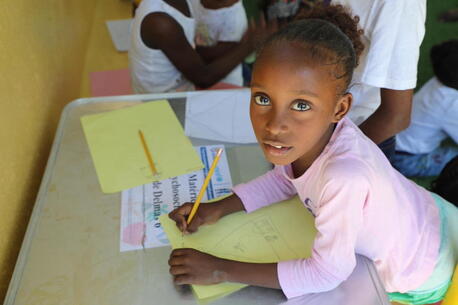
Surge in Violence Fuels Humanitarian Crisis in Haiti
Escalating violence in and around Port-au-Prince has intensified in recent weeks, forcing thousands more women and children to flee their homes, compounding health and safety risks. Calling the situation for children "a living nightmare," UNICEF Haiti Representative Bruno Maes urged more support for the emergency response. "It is complete suffering. We cannot stay frozen."
Tens of thousands more people have been forced to flee escalating violence in Port-au-Prince since the beginning of the year as fighting between armed groups continues to grip Haiti’s capital city and neighboring Arbonite department.
Children are being shot and killed in the crossfire. Critical social services have all but collapsed. Medical supplies are scarce. Hospitals, under threat of attack, are being forced to evacuate patients. Many schools remain closed, shutting out 300,000 students.
“The population [of Haiti] is facing some of the worst human rights violations and threats to their lives in the country’s recent history,” UNICEF Representative in Haiti Bruno Maes said. “Each day brings new horrors, the loss of loved ones, homes being destroyed by fires or bullets and an ever-present shadow of fear.”
According to the latest data from UNICEF partners, at least 167 boys and girls were killed or injured by bullets in Haiti in 2023. Sexual violence against children is also escalating; 2,701 cases of sexual violence were reported between January and November last year, of which 1,895 involved children.
By end of January 2024, the number of internally displaced children had soared to 170,000 — double the number compared to the same time last year.
Over 40 percent of the population is food insecure, contributing to high rates of child malnutrition, and access to safe drinking water and sanitation remains severely restricted, which complicates efforts to contain the latest resurgence of cholera.
Despite the scale and severity of the crisis, the lack of attention to Haiti poses a daunting challenge. The cost of indifference and inaction is unconscionable. The future of Haiti’s children is at stake. — Bruno Maes, UNICEF Representative in Haiti
As part of its ongoing emergency response in the country, UNICEF is working closely with government and partners to monitor the situation and to provide support and care to children and families in need, while calling on authorities at all levels to stop the violence and to prioritize the restoration of critical health, education and other social services.
UNICEF estimates that 3 million children across Haiti will require humanitarian aid in 2024. Over 1 million urgently need protection, with this number expected to rise if conditions worsen. Haiti is already the Western Hemisphere's poorest nation, and prolonged conflict has only deepened vulnerabilities among the population.
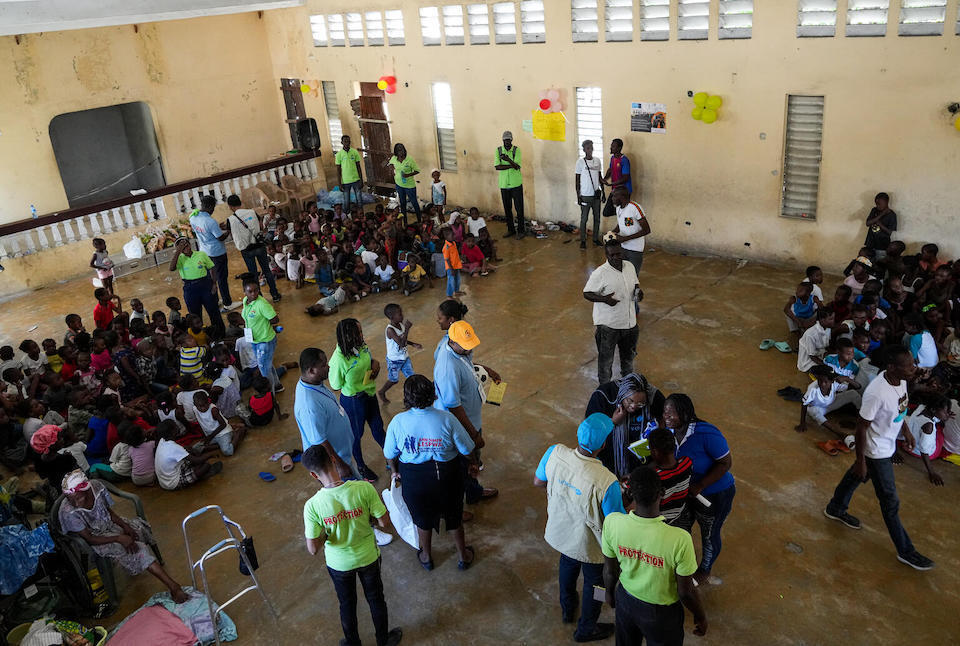
UNICEF has maintained a consistent presence in the country and is committed to staying and delivering multi-sectoral aid in affected areas, focusing on the most vulnerable children — children who are displaced and otherwise impacted by violence, children who become separated from their families, children who are malnourished and who are out of school.
Working alongside partners, UNICEF provides lifesaving assistance, ensuring access to medical care, psychosocial support and safe spaces where children can begin the process of healing and recovery.
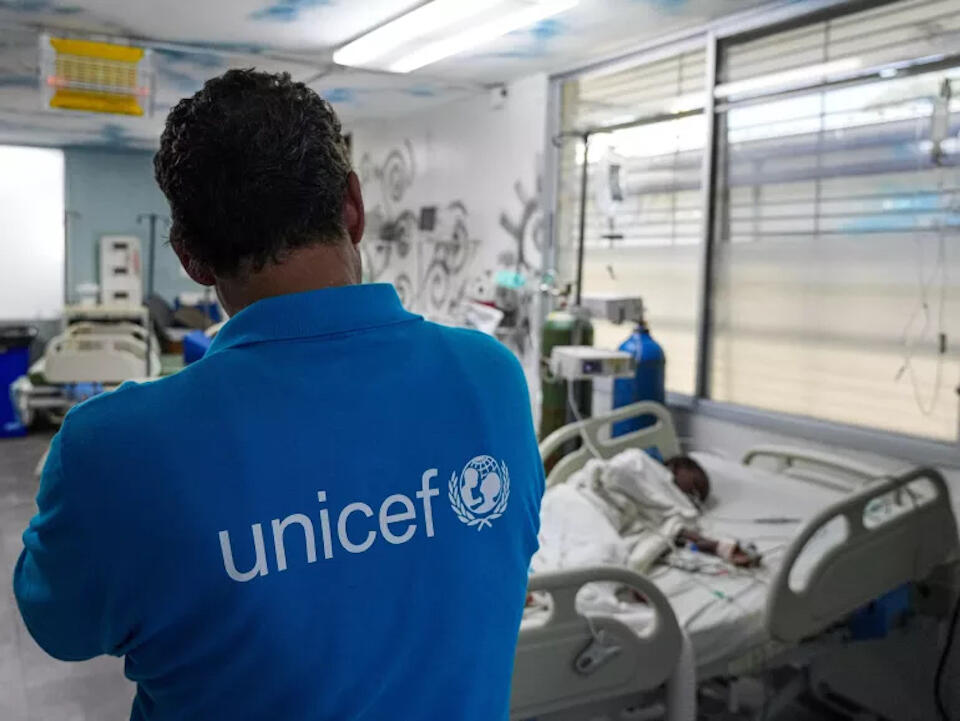
In 2023, UNICEF helped the government of Haiti provide basic services to more than 1.1 million people with critical support, protection and emergency services and prepositioned supplies to support future deployments — but more funding is required to address growing needs across all major program areas: nutrition, education, water, sanitation and hygiene (WASH) and child protection.
UNICEF is reaching some children in Haiti with nutrition, health care and education support — but more needs to be done, and donor support is needed to do it
According to its most recent situation report, UNICEF reached 86,159 conflict-affected children last year with education services and learning support — just 5 percent of its target — due largely to financial constraints. In health, UNICEF-supported interventions managed to reach 104,687 women, 150,227 girls and 138,899 boys across 10 departments — including people living in areas controlled by armed groups — but the goal had been to reach hundreds of thousands more.
In nutrition, UNICEF achieved 68 percent of its 2023 target in terms of number of children screened for malnutrition. Training and deploying a team of 40 community health workers to cover all neighborhoods in Cité Soleil, a high-needs municipality, helped reach thousands of children suffering from severe acute or moderate acute malnutrition with treatment. But needs continue to outstrip resources.
Much more needs to be done, and more donor support is needed to do it. "It is complete suffering," said Maes. "We cannot stay frozen... The future of Haiti’s children is at stake.”
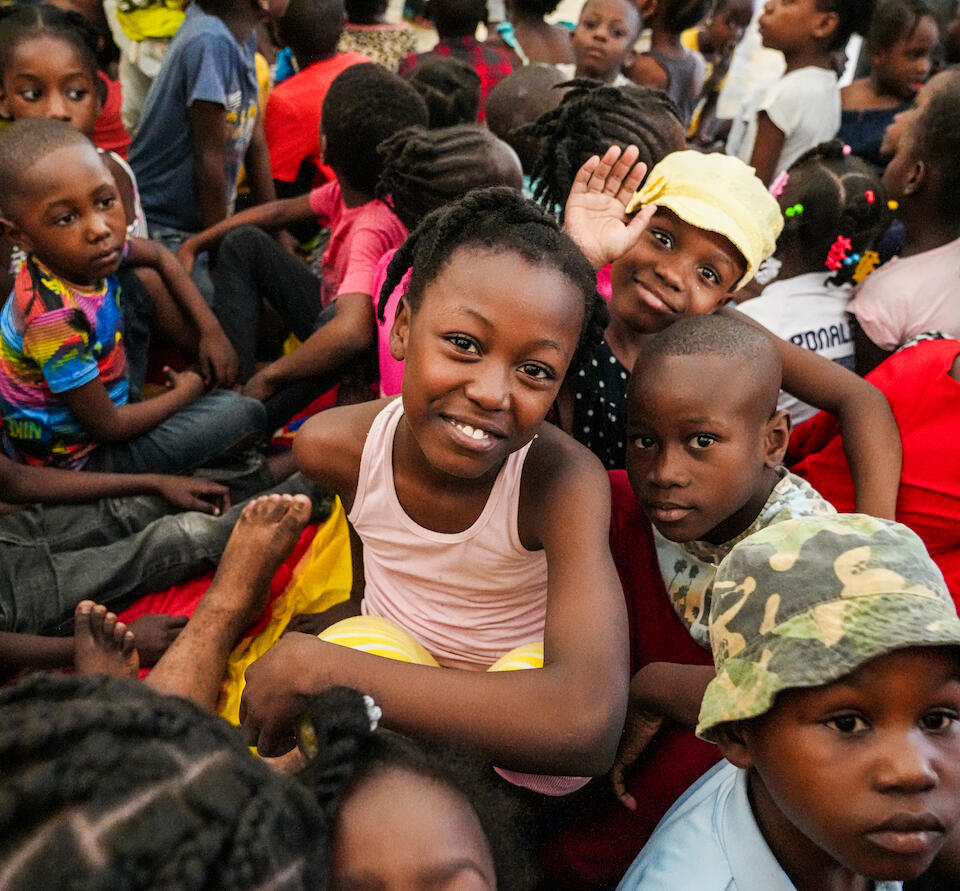
In 2024, UNICEF's plan for Haiti is to keep scaling the humanitarian response by providing support to the government, increasing access to basic services and helping to keep those services going. In addition to programs in water, sanitation and hygiene, education, health, nutrition and child protection, UNICEF also supports cholera rapid-response teams, gender-based violence prevention and response services and disaster risk reduction and emergency preparedness activities.
Timely, flexible funding is essential for UNICEF to reach Haiti's most vulnerable, crisis-affected children.
UNICEF won’t stop until every child in Haiti is healthy, educated, protected and respected. Support UNICEF's humanitarian mission in Haiti. Donate today.
HOW TO HELP
There are many ways to make a difference
War, famine, poverty, natural disasters — threats to the world's children keep coming. But UNICEF won't stop working to keep children healthy and safe.
UNICEF works in over 190 countries and territories — more places than any other children's organization. UNICEF has the world's largest humanitarian warehouse and, when disaster strikes, can get supplies almost anywhere within 72 hours. Constantly innovating, always advocating for a better world for children, UNICEF works to ensure that every child can grow up healthy, educated, protected and respected.
Would you like to help give all children the opportunity to reach their full potential? There are many ways to get involved.



